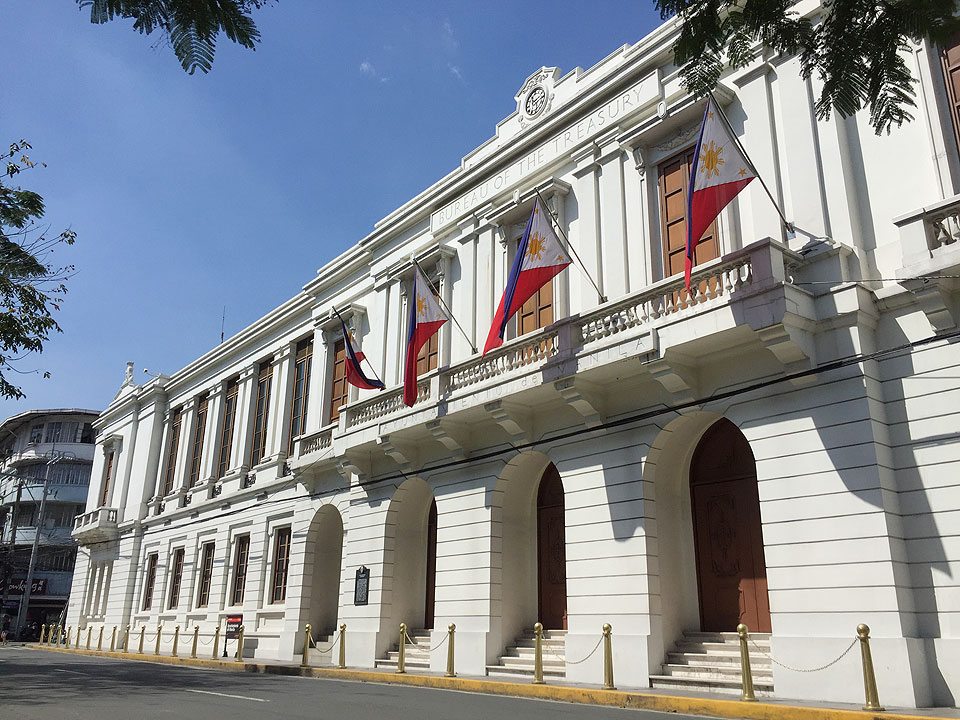Gov’t makes full award of T-bills on strong demand amid tightening bets

THE GOVERNMENT made a full award of the Treasury bills (T-bills) it offered on Monday as rates declined on strong demand for short-term securities amid expectations of monetary policy tightening and as oil prices eased.
The Bureau of the Treasury (BTr) raised P19 billion from T-bills it auctioned off on Monday, higher than its P15 billion program as it accepted more non-competitive bids for the 91- and 182-day tenors.
Total tenders reached P71.25 billion, almost five times as much as the initial offer and higher than the P54.59 billion in bids seen at last week’s auction.
Broken down, the BTr raised P7 billion from the 91-day debt papers, higher than the planned P5 billion, as it accepted P4 billion in non-competitive bids versus the P2-billion program. Total tenders reached P32.734 billion and the average rate of the three-month debt dropped by 13 basis points (bps) to 1.25% from the 1.38% fetched at last week’s auction.
The government also raised P7 billion via the 182-day securities, higher than the P5-billion program, as it accepted P4 billion in non-competitive tenders or double the P2-billion plan. Bids for the tenor reached P27.5 billion and its average yield declined by 22.6 bps to 1.555% from the 1.781% fetched at the previous auction.
Lastly, the BTr made a full P5-billion award of the 364-day T-bills as tenders reached P11.02 billion. The average rate of the one-year papers went down by 2.6 bps to 1.857% from 1.883% a week earlier.
At the secondary market prior to the auction, the 91-, 182, and 364-day bills fetched rates of 1.3352%, 1.5165%, and 1.7904% respectively, based on the PHP Bloomberg Valuation Reference Rates published on the Philippine Dealing System’s website.
National Treasurer Rosalia V. de Leon in a Viber message to reporters said the BTr accepted more non-competitive bids for 91- and 182-day T-bills amid strong demand and as investors asked for rates “lower than previous auctions.”
“Markets flocked to short-term [debt] as oil prices ease with release of reserves from stockpile. Maturities also added support for reinvestment,” Ms. De Leon said.
Oil prices remained under pressure after world consumers announced plans to release crude from strategic stocks and as Chinese lockdowns continued, Reuters reported.
Early Monday, Brent was down $2.05 at $100.73, while US crude lost $2.10 to $96.16.
The International Energy Agency, which is made up of 31 member nations, will release 60 million barrels over the next six months, with the United States matching that amount as part of its 180-million-barrel release announced in March.
“Yields were lower than initially expected as driven by very strong demand for short dates. Investors are seen parking their excess liquidity at the short-end on expectations yields will rise further due to monetary policy normalization by central banks globally,” the first trader said.
A second trader in a Viber message said the auction result was expected as investors asked for lower yields.
“Interestingly, the bids for one-year bills are not that low compared to shorter ones,” the second trader said. “This indicates that market players are wary of rate path considering [a] one-year horizon or past 2022.”
Central banks around the world have been tightening their monetary policies to temper inflation despite lingering risks to economic growth.
The Fed hiked its policy rates for the first time since 2018 by 25 bps last month to combat its surging inflation that reached a 40-year high in February. It signaled more aggressive hikes in the coming meetings.
At home, Bangko Sentral ng Pilipinas (BSP) Governor Benjamin E. Diokno last week said they are ready to take preemptive action if inflation expectations become at risk or disanchored. He said March consumer price index data suggest inflation will likely be elevated in the coming months.
Headline inflation in March was at 4%, matching the upper end of the central bank’s 2-4% target. It was quicker than the 3% in February, showing the impact of the surge in oil prices caused by the Russia-Ukraine war.
The BSP kept its benchmark rates untouched for the 11th straight meeting last month. Mr. Diokno earlier said the policy rate could reach up to 2.75% by next year from the current 2%, which is a record low.
The BTr wants to raise P200 billion from the domestic market in April, or P60 billion through T-bills and P140 billion via Treasury bonds.
The government borrows from local and external sources to help fund a budget deficit capped at 7.7% of gross domestic product this year. — T.J. Tomas with Reuters



